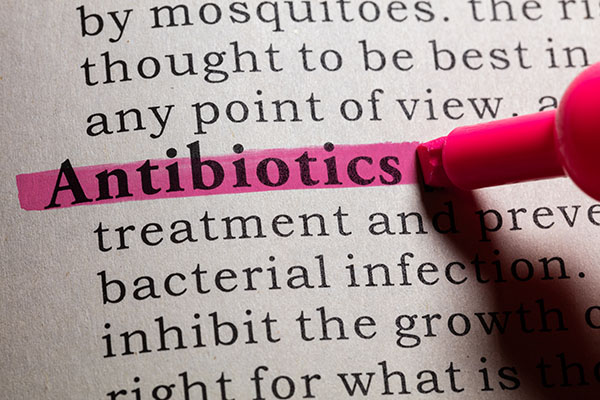 Parler
Parler Gab
Gab
- The gut microbiome directly influences brain function and mental health through the gut-brain axis.
- Imbalances in gut bacteria are linked to anxiety, depression, ADHD and autism spectrum disorders.
- Probiotics, prebiotics and fermented foods can restore microbial balance and improve mood.
- Dietary changes (low-carb, high-fat, or Mediterranean diets) show strong correlations with reduced anxiety and depression.
- Emerging research suggests fecal transplants and psychobiotics may revolutionize mental health treatment.
The gut-brain axis: A two-way highway
The gut-brain axis is a complex communication network linking the gastrointestinal tract to the central nervous system, forming a critical feedback loop that influences both mental and physical health. Stress, poor diet, environmental toxins (such as pesticides, heavy metals and pharmaceutical residues) and even electromagnetic pollution can disrupt this delicate balance, altering gut bacteria and triggering systemic inflammation—a key factor in depression, anxiety and even neurodegenerative diseases. Conversely, a healthy microbiome produces essential neurotransmitters like serotonin (90% of which is made in the gut) and GABA, which regulate mood and calm the nervous system. Emerging research suggests that gut dysbiosis—often caused by processed foods, glyphosate-laced crops and antibiotic overuse—plays a significant role in the epidemic of mental health disorders. Fascinatingly, studies show that fecal transplants from confident mice can make timid rodents more adventurous—a phenomenon mirrored in humans, where probiotics and prebiotic-rich foods (such as onions, garlic, bananas and fermented foods) have been shown to reduce anxiety and depression symptoms. However, mainstream medicine, heavily influenced by Big Pharma, continues to push toxic psychiatric drugs like SSRIs—which often worsen gut health—instead of addressing root causes.Diet’s powerful role in mental health
Women, in particular, are more vulnerable to psychological distress linked to food intolerances, likely due to hormonal fluctuations and the gut’s role in estrogen metabolism. Rebalancing the microbiome through organic, nutrient-dense foods, herbal medicine and detox protocols offers a powerful, natural alternative to the failing psychiatric model—one that empowers individuals rather than enslaving them to Big Pharma’s profit-driven schemes. Food choices dramatically shape gut bacteria, with profound effects on mental well-being:- Probiotics (Lactobacillus, Bifidobacterium): Reduce stress and depressive symptoms.
- Prebiotics (fiber, GOS): Feed beneficial bacteria, lowering anxiety.
- Fermented foods (kefir, kimchi): Boost microbial diversity and resilience.
- Anti-inflammatory spices (turmeric, chili peppers): Reverse gut imbalances linked to mood disorders.
Psychobiotics: The future of mental health treatment?
The emerging field of psychobiotics explores how specific bacterial strains can treat psychiatric conditions. Early trials show promise:- Autism & ADHD: Children with these disorders often have low levels of beneficial bacteria (e.g., Lactobacillus) and excess toxin-producing strains (e.g., Clostridium). Probiotic interventions improve behavior and focus.
- Depression: Fecal transplants from healthy donors alleviate symptoms in depressed patients.
- Anxiety: Strains like Bifidobacterium longum reduce cortisol and enhance stress resilience.
Feed your microbes, nourish your mind
The science is clear: A healthy gut is the foundation of a healthy mind. By prioritizing whole foods, reducing toxins and incorporating probiotics, individuals can take control of their mental well-being—without relying solely on medications. As research advances, the gut-brain connection may redefine how we treat anxiety, depression and neurological disorders. The next frontier in mental health isn’t just in the brain—it’s in the microbiome. Your diet doesn’t just shape your body—it shapes your thoughts, emotions and resilience. Choose wisely. Sources for this article include: MindBodyGreen.com MarionGluckClinic.com PubMed.com PubMed.comBreaking up the MMR: A simple change that could revolutionize childhood immunization
By Willow Tohi // Share
Eating cheese once a week linked to 24% lower dementia risk, study finds
By Cassie B. // Share
Antibiotics in early childhood: A threat to gut health and long-term wellness
By Evangelyn Rodriguez // Share
Spice up your food for weight loss
By News Editors // Share
Study: Cockroach infestations contaminate homes with bacterial toxins, amplifying asthma risks
By Jacob Thomas // Share
Governments continue to obscure COVID-19 vaccine data amid rising concerns over excess deaths
By patricklewis // Share
Tech giant Microsoft backs EXTINCTION with its support of carbon capture programs
By ramontomeydw // Share
Germany to resume arms exports to Israel despite repeated ceasefire violations
By isabelle // Share










